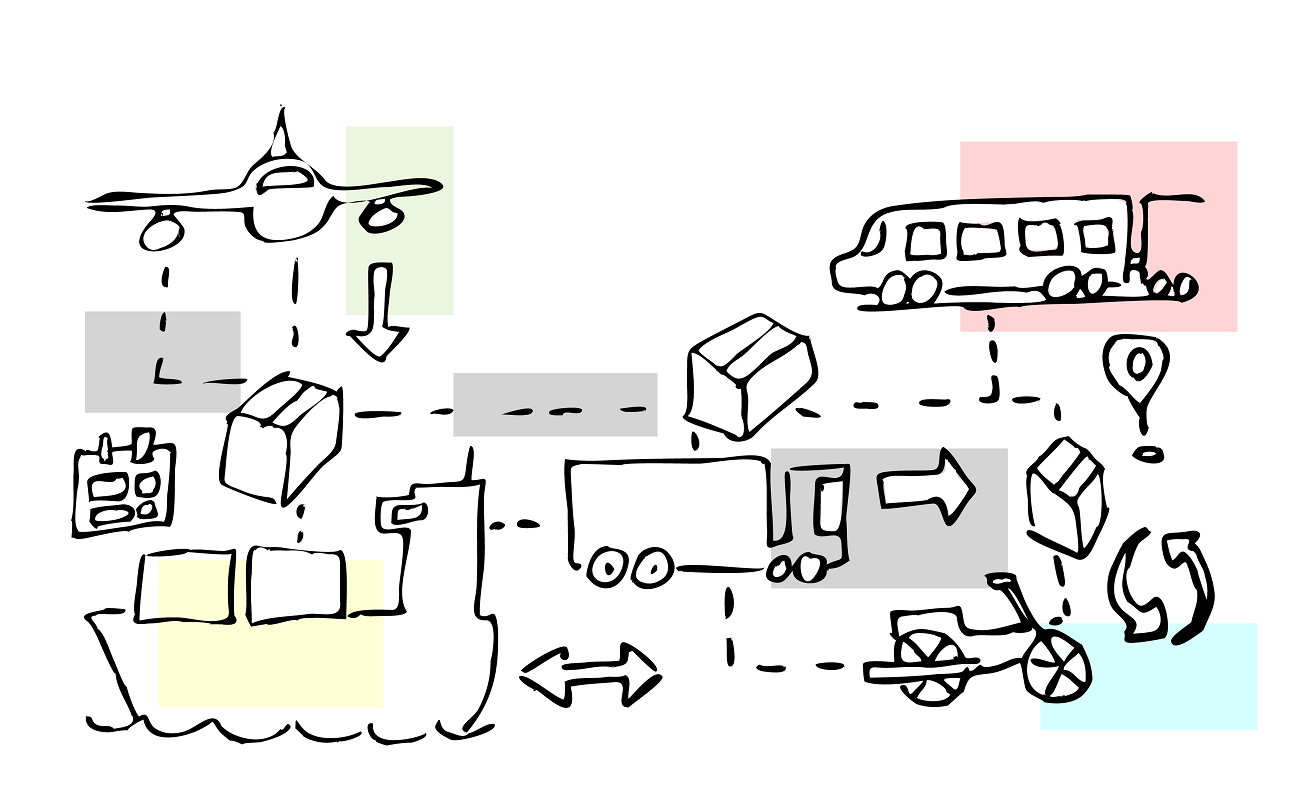
Supply Chain Management
October 23, 2020
Why 2021 Is the Right Time to Modernize Your Supply Chain
Supply chain management has been undergoing fundamental changes over the last several years, increasingly becoming both automated and autonomous. Given the many challenges that 2020 has presented to businesses with a global supply chain, the time is right to tackle both issues at once by meeting the challenges of Covid-19 through supply chain modernization.
Businesses throughout the supply chain, from SMEs to large distributors and manufacturers, are all in a ripe position for digital modernization as customers demand quicker and more accurate turnaround times. Many companies have broadened their networks this year because of pandemic-related disruptions and the trade war with China, and are now working with new vendors. Handling this is much easier with modern supply chain management.
Why Change is Needed
To understand just how important the need for modernizing supply chain management has become, let’s examine some of the obstacles faced by businesses that are using older processes.
Technology is obviously one of the biggest challenges for companies still embracing manual processes and practices. Automated inventory management, RFID tags and mobile scanning are all becoming de facto practices in modern warehouses and distribution centers. They enable a host of benefits including accurate inventory management and tracking throughout the supply chain. If your company is one of the links in that chain and cannot make use of these technologies, supply chain partners may very well find another company that can.
Similarly, if your company's billing, accounting and other back-end processes are being handled through spreadsheets or outdated software applications, efficiency, productivity and accuracy will all suffer. Again, this puts a business at a competitive disadvantage.
Information gaps are another serious problem for companies that have not adopted a modern system for supply chain management. Many government agencies, from the FDA to the Securities and Exchange Commission, require real-time data capture for reporting purposes. This is a major concern in the healthcare, financial, food and beverage and other industries, and companies that fail to comply face steep fines and other penalties. Manual, outdated tracking and recording processes simply won't cut it when it comes to meeting these types of stringent requirements.
The Benefits of Modernized Supply Chain Management
The central element of modernizing your supply chain is a modern, cloud-based ERP system that serves as the digital backbone for all your company’s operations. Modern ERP systems bring better visibility, connectivity, real-time reporting and automation, among other benefits.
Now is the time to modernize your supply chain management processes with an ERP upgrade, and there are many benefits. Here are a few of the advantages.
1. Holistic Integration
A cloud-based ERP solution will track and store data across different departments, products, suppliers and even customers. This is a massive asset for data storage and access, enabling a holistic, centralized repository that may be accessed by whomever and whatever needs information (when granted access to specific data, of course). Streamlined data storage also facilitates more accurate reporting and analytics to aid in high-level business decision making and planning.
2. Automation Equals Autonomy
Modern supply chain management includes automating many rote and repetitive tasks. This improves accuracy and speed, but also has the benefit of creating a largely autonomous supply chain. The result is that workers have more time and resources to focus on higher-level objectives such as generating new business and long-term planning. Ultimately this leads to cost savings, improved productivity and better planning and preparation for the future.
3. Inventory Management
Keeping a tight rein on inventory is one of the biggest competitive advantages for any company in the supply chain. Modernizing inventory management through a comprehensive ERP system ensures items remain stocked in a timely manner and inventory reports are updated in real time. The bottom line is a more accurate and streamlined approach to inventory management as well as better turnaround times and improved customer satisfaction.
4. Visibility
By centralizing and modernizing supply chain management, your company creates visibility for customers, partners and vendors. All the players and moving parts in the supply chain will be able to view and track your company's role in that chain in real time, a valuable resource for most businesses. This type of transparency removes false expectations about when a product may be available or delivered, too, providing accurate and automatically updated information about its movement throughout the supply chain.
5. Cost Savings
Cost is always a factor with new technology. And while there is capital investment in migrating to a new cloud-based ERP system, the cost associated with cloud solutions are significantly lower than on-premise and legacy systems since the maintenance and hardware requirements are pushed to the cloud vendor. Businesses that invest in cloud-based ERP usually pay for their systems after less than a year, and then reap significant savings after that. Modern frequently cuts backend IT costs by up to 30 percent per year.
This has been a challenging year for business, and with good reason. Having a holistic, cloud ERP system in place will help your company deal with today's supply chain management challenges more easily, however, while also preparing your business for the future.
Now is the right time to update your supply change management practices not only to weather the storm today, but also so your business can be better prepared for the better days to come.

